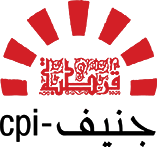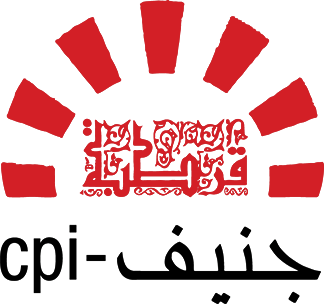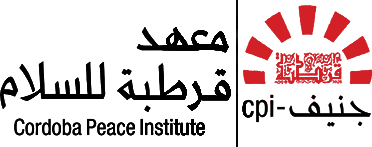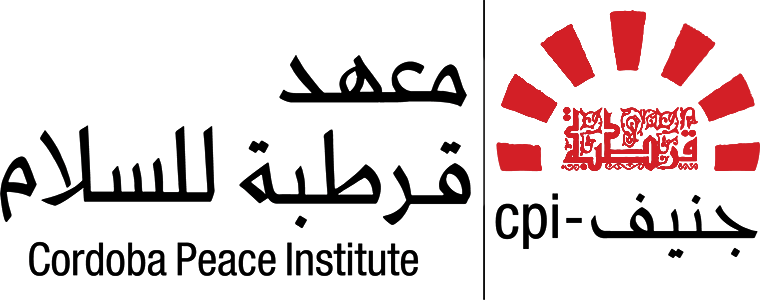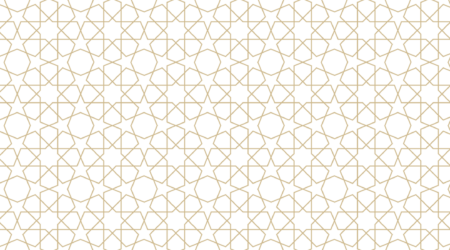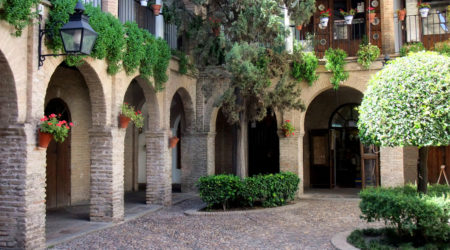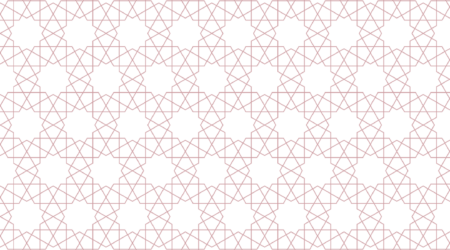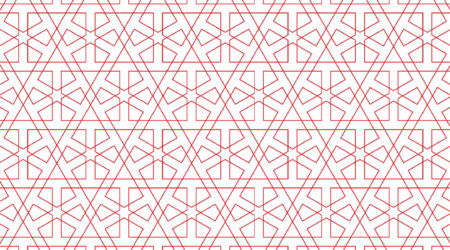The Cordoba Update 22.09-05.10.2015

| In line with the programmes and projects funded by partners of the Cordoba Foundation of Geneva, updates and information are included under the following geographical regions and themes: | |
North Africa:
|
Sahel region:
|
Middle East:
|
Cross-regional:
|
ISLAMIST-SECULAR RELATIONS /
RELATIONS ENTRE SÉCULIERS ET ISLAMISTES
Egypt, 03-04.10.2015: Egypt: Secular or Not?
Egypt’s Culture Minister Helmy al-Namnam has reiterated his opposition to religious influence on politics and society, stating that Egypt is “instinctively secular,” adding “I will remain against whomever promotes the idea of turning Egypt into a Caliphate, and am ready to die for that.” The Salafi Call has demanded that al-Namnam apologize for calling Egypt “instinctively secular”, adding that the choice of Namnam as culture minister has aroused concerns among Egyptians. Meanwhile Cairo University dismissed Seif Abdel Fattah, a professor at the Faculty of Economics and Political Science, citing that the university law stipulates that a member of the faculty staff may be dismissed if he or she fails to be present at work for 30 consecutive days. Seif said that University’s decision was “politicized.” He was a former adviser to ousted president Mohamed Morsi, but he resigned in December 2012 following an unpopular and highly-divisive constitutional declaration issued by Morsi.
Links for more information:
http://www.egyptindependent.com/news/culture-minister-reiterates-egypt-s-secular-identity
http://www.egyptindependent.com//news/salafis-request-minister-s-apology-secular-egypt-remarks
http://www.egyptindependent.com//news/university-expulsion-politicized-former-morsi-aide
Tunisia, 23.09.15: Prison Sentence Causes Contention
The sentencing of a 22 year-old man to one year’s imprisonment for homosexual acts has been a source of debate between Tunisian political figures. The sentence, as well as the examination methods used by the prosecution to produce evidence against the man (pseudonym Marwan), was denounced by al-Qotb and al-Massar parties, and the “Commission on Rights and Liberties” of the Assembly of People’s Representatives. Human Rights Watch has said that the decision violates Tunisia’s constitution and international law.
Samir Ettaieb, Secretary General of al-Massar, believes the decision demonstrates that public figures within the country – including the Grand Mufti of Tunisia – “espouse the ideology of Daesh” (Islamic State). The prison sentence has led the Tunisian Minister of Justice, amongst others, to call for the amendment of the relevant article of the constitution, but in an interview televised on a state visit to Egypt, President Caïd Essebsi announced his opposition to any abrogation to the article.
Links for more information:
http://kapitalis.com/tunisie/2015/09/23/un-jeune-homme-condamne-a-1-an-de-prison-pour-homosexualite/
http://kapitalis.com/tunisie/2015/09/29/condamnation-pour-homosexualite-lassemblee-condamne/
http://kapitalis.com/tunisie/2015/09/27/arrestation-pour-homosexualite-al-qotb-condamne/
https://www.hrw.org/news/2015/09/28/tunisia-one-year-sentence-homosexuality
http://kapitalis.com/tunisie/2015/09/30/samir-ettaieb-le-mufti-porte-lideologie-de-daech/
http://www.tvcnews.tv/?q=article/tunisia%E2%80%99s-justice-minister-backs-repeal-gay-sex-ban
http://kapitalis.com/tunisie/2015/10/06/homosexualite-caid-essebsi-contre-labrogation-de-larticle
TRANSITION AND POLITICAL PARTICIPATION /
TRANSITION ET PARTICIPATION POLITIQUE
Egypt, 30.09-06.10.2015: Egypt’s Human Rights Abuses and Pardons
The trial of an Irish teenager, Ibrahim Halawa, who was jailed two years ago over political protests in Egypt, has been adjourned until December 15, 2015 with the potential for the death penalty hanging over him if convicted. While thousands of political dissents remain in prison under a vast political clampdown that began in 2013, Egypt’s President Abdel-Fattah el-Sisi issued a raft of pardons for political prisoners on September 30, 2015. The announcement was regarded as an attempt to burnish the image of Sisi’s government after two years marred by the arrest of thousands of dissidents, protesters, students and journalists. It also came on the eve of Sisi’s visit to New York for meetings of the United Nations General Assembly. Many human rights organizations condemns the ongoing arbitrary detention of political activists as there are thousands of dissidents in prisons and dozens of them have died in overcrowded jails over the past year. There has also been a rise in the number of people going missing at the hands of the security services.
Links for more information:
http://time.com/4046513/egypt-political-prisoners-sisi-al-jazeera-journaliss/
http://www.independent.ie/breaking-news/irish-news/egypt-protests-teenager-faces-further-three-months-without-trial
http://www.bbc.com/news/world-middle-east
http://www.bbc.com/news/world-africa
Egypt, 10/05/2015: Egypt’s Controversial Elections
President Al Sisi said on October 5 that the newly-appointed Egyptian cabinet will remain in power if the parliament due to be elected in October and November approves its agenda. As the government plans to hold parliamentary elections in October and November, many pro-25 January Revolution parties find themselves in a problematic position as the pro-state and anti-revolution forces are getting support from the government to secure a sweeping majority in the parliament. Ahmed Fawzy, Secretary General of the Egyptian Social Democratic Party, said “the people who were against the revolution are leading the scene now, and all the rhetoric by the authority that it respects the January revolution is not found in reality. There is no future, but we have to try,” adding the current authority doesn’t believe in democracy and freedoms. “The Egyptian revolution is defeated. It (the parliament) will be the worst parliament in the history of the country. It will be even worse than the 2010 parliament.”
Links for more information:
http://gulfnews.com/news/mena/egypt/egypt-s-al-sissi-says-cabinet-to-remain-in-place-if-agenda-approved-by-parliament
http://www.dailynewsegypt.com/2015/09/21/next-parliament-will-be-worst-in-egypts-history-esdp-secretary-general/
Libya, 05.10.15: Controversy in Final Version of UN Dialogue Agreement
On 21 September, Bernardino Leon – United Nations Special Representative and Head of the United Nations Support Mission in Libya (UNSMIL) – announced the Final Draft of the Libya Political Agreement. UNSMIL aimed for the Agreement’s ratification by both the House of Representatives (HoR) and General National Congress (GNC) governments by the end of September, with a view to forming a Government of National Accord (GNA) before 20 October. The Agreement envisions a one-year united national government, incorporating the current elected parliament and another chamber.
The HoR Women’s Bloc members refuted the final agreement, as well as Sheikh Sadik Al-Ghariani of the Dar al-Ifta fatwa organization, who indicated that shari’a should be the law – rather than the source of the law, referring to Article 5 of the Governing Principles: “Commitment that Islamic law (Sharia) is the source of legislation; it shall not be permissible to issue any legislation that contradicts with it.” On 05 October, the HoR voted to extend its term beyond the 21 October by amendment of the 2011 Constitutional Declaration, complicating UNSMIL’s goal of unifying Libya’s rival governments.
Links for more information:
https://www.libyaherald.com/2015/10/04/amended-dialogue-draft-increases-state-council-role
http://www.reuters.com/article/2015/10/02/us-un-assembly-libya
https://www.libyaherald.com/2015/10/05/hor-jumps-libya-dialogue-gun-votes-to-stay-in-power/
http://www.digitaljournal.com/news/politics/op-ed-un-sponsored-libya-dialogue-could-extend-beyond-october
https://www.libyaherald.com/2015/10/01/hor-womens-bloc-members-say-no-to-latest-libya-dialogue-draft/
https://www.libyaherald.com/2015/10/04/ghariani-says-sharia-as-basis-of-legislation-not-enough/
http://unsmil.unmissions.org/Default.aspx?tabid=3543&ctl=Details&mid=6187&ItemID=2099269
https://www.libyaherald.com/2015/09/29/dialogue-draft-invalid-if-sharia-law-not-accepted-says-ghariani/
RELATIONS BETWEEN COMMUNITIES OF DIFFERENT ETHNIC AND CULTURAL AFFILIATION /
RELATIONS ENTRE COMMUNAUTÉS DE DIFFÉRENTES AFFILIATIONS ETHNIQUES ET CULTURELLES
Mali, 03.10.2015 : Rapprochement de la CMA et de la Plate-forme
Un mois après les violents affrontements qui ont opposé les combattants de la CMA et ceux de la Plate-forme à Anefis, les deux parties se sont rencontrées lundi 28 septembre, en présence de membres du gouvernement malien, en prélude à la 4ème réunion du Comité de suivi de l’accord d’Alger. Un échange de prisonniers entre le gouvernement et la CMA a suivi cette rencontre dans le cadre de ce qui semblait être une « décrispation autour du processus de paix ». Un représentant de la CMA a confirmé des « contacts directs » afin de palier à la communication difficile entre les parties.
A la sortie de la séance du Comité de suivi de l’accord qui a pris fin le jeudi 1er octobre, un blocage semblait se concentrer autour de la question de la représentativité des autres groupes signataires de l’accord du 15 mai dernier, regroupés dans une nouvelle coordination, COMPIS 15, la Coordination des mouvements prônant l’inclusivité et signataires du 15 mai 2015. En effet, cette séance a vu les deux parties, la CMA et la Plate-forme, se rapprocher considérablement. Les autres groupes craignent de se voir écarter de la mise en œuvre de l’accord. Certains voient également dans le rapprochement des deux principales parties un risque d’une alliance qui pourrait être utilisée contre le gouvernement.
Jeudi 1er octobre a aussi vu se tenir la troisième réunion de la Commission technique de sécurité. La localisation de sites de cantonnement qui fait partie des mesures à mettre en œuvre pour le désarmement des combattants a ainsi commencé.
En outre, dans son adresse à l’assemblée générale de l’ONU, le ministre des affaires étrangères malien, Abdoulaye Diop, a mis en garde contre le rôle du trafic qui alimente le conflit à travers le pays.
Liens pour plus d’informations :
http://mnlamov.net/actualites/461-rencontre-entre-la-cma-et-la-plate-forme
http://www.studiotamani.org/index.php/politique/5313
http://maliactu.net/mali-echange-de-prisonniers-entre-le-gouvernement-et-lex-rebellion/
http://www.news24.com/Africa/News/Mali-govt-rebels-swap-prisoners
http://maliactu.net/mali-la-cma-libere-16-soldats-maliens/
http://maliactu.net/mali-troisieme-reunion-de-la-commission-technique
http://www.studiotamani.org/index.php/politique/5298
http://maliactu.net/mali-mise-en-oeuvre-de-laccord-de-paix-les-acteurs-poussent-le-chauffage/
http://maliactu.net/mali-victime-dexclusion-au-csa-compis-15-accuse-la-mediation-de-partialite/
http://www.maliweb.net/la-situation-politique-et-securitaire-au-nord/
http://www.news24.com/Africa/News/Drug-trafficking-fuelling-Mali-conflict-minister
RELATIONS BETWEEN MUSLIM COMMUNITIES WITH DIFFERENT RELIGIOUS REFERENCES /
RELATIONS ENTRE LES COMMUNAUTÉS MUSULMANES DE DIFFÉRENTES AFFILIATIONS RELIGIEUSES
Bahrain, 03.10.2015: Bahrain Submits Formal Complaint against Iran to UN
Bahrain has presented a formal complaint against Iran to the UN Secretary General on the sidelines of the UN General Assembly “for its continued unacceptable interference in the internal affairs of the Kingdom of Bahrain”, the foreign ministry said. On Thursday October 1, Bahrain recalled its ambassador to Iran and asked the Iranian charge d’affaires to leave the kingdom within 72 hours after he was declared persona non-grata. Among other reasons was the accusation that Iran has been trying to create sectarian strife inside the Kingdom. A day before the complaint was submitted, Bahrain said security authorities had discovered a large bomb-making factory and arrested a number of suspects “holding strong connections with the Iranian Revolutionary Guards and Hezbollah”.
Iran reacted the day after, on Friday October 2, in declaring the number two official in Bahrain’s embassy in Tehran persona non-grata and asked him to leave within 72 hours.
Iran denies involvement in any violence in Bahrain.
Links for more information:
http://www.middleeasteye.net/news/bahrain-recalls-its-ambassador-iran-expels-tehran-envoy
http://www.reuters.com/article/2015/10/01/us-bahrain-security-iran
http://gulfnews.com/news/gulf/bahrain/bahrain-submits-formal-complaint-against-iran-to-un
http://gulfnews.com/news/gulf/bahrain/iran-expels-bahrain-envoy
http://arabi21.com/story/862824/
http://www.aljazeera.net/news/arabic/2015/10/3/
http://www.aljazeera.net/news/arabic/2015/10/1/
Arabie saoudite, Iran, 02.10.2015 : Les Tensions entre les Deux Pays se Durcissent autour de la Tragédie du Hajj
L’Iran a adressé parmi les plus dures critiques à l’Arabie saoudite après la tragédie du Hajj qui a fait 769 victimes selon les autorités saoudiennes et plus d’un millier selon d’autres pays qui déplorent de nombreuses pertes, dont l’Iran avec un total de 464 victimes. En effet, après ce que l’Iran considère comme l’échec de l’Arabie saoudite à assurer la sécurité des pèlerins, il l’accuse de mauvaise organisation du Hajj, lui demande des excuses officielles et requiert une enquête complète des circonstances du drame. L’ayatollah Khamenei a appelé à la formation d’un comité d’investigation composé des différentes nations musulmanes, alors que des voix se sont levées pour demander à ce que la supervision du Hajj soit retirée à l’Arabie saoudite au profit d’un comité islamique plus large.
De son côté, le ministre des affaires étrangères saoudien, Adel bin Ahmed Al-Jubeir, a reproché à l’Iran d’exploiter politiquement cette tragédie.
Certains analystes observent que le Hajj, au lieu d’être une occasion d’union, a été cette année l’occasion de creuser encore le fossé entre les deux puissances régionales. De nombreuses manifestations dans lesquelles le régime saoudien était identifié à un « ami de Satan » ont eu lieu près de l’ambassade d’Arabie saoudite à Téhéran, tandis que les medias sociaux arabes ont réagi très violemment aux critiques de l’Iran.
Liens pour plus d’informations :
http://www.al-monitor.com/pulse/originals/2015/10/reactions-to-hajj-tragedy.html
http://www.theguardian.com/world/2015/sep/25/iran-blames-saudi-government
http://www.nytimes.com/2015/09/26/world/middleeast/hajj-stampede-mecca-saudi-arabia
http://www.al-monitor.com/pulse/originals/2015/09/hajj-stampede-iran-saudi.html
http://www.middleeasteye.net/news/analysis-iran-blame-saudi-hajj-stampede-likely-seek-form-revenge
http://www.theguardian.com/world/2015/oct/01/hajj-crush-iran-death-toll-rises-saudi-arabia
http://foreignpolicy.com/2015/09/25/iran-to-saudi-arabia-you-dont-deserve-to-organize-the-hajj/
http://edition.cnn.com/2015/09/30/middleeast/hajj-deaths-saudi-iran-yemen/
http://edition.cnn.com/2015/09/27/middleeast/hajj-pilgrimage/
http://www.al-monitor.com/pulse/originals/2015/09/iran-lebanon-ambassador-missing.html
Qatar, 28.09.2015: Les Tensions sont Politiques et non pas entre Sunnites et Chiites
Dans son adresse devant l’Assemblée générale des Nations Unies, lundi 28 septembre, l’émir du Qatar a rejeté l’idée d’un conflit entre les deux principaux courants de l’islam, sunnite et chiite, se manifestant à travers le Moyen-Orient. Il a souligné l’essence politique de ces conflits dus à la dispute entre l’Iran et les Etats arabes dans la région. Il a ainsi annoncé que le Qatar était prêt à accueillir un dialogue sérieux entre les deux parties, soulignant qu’il était temps de mettre en œuvre une telle initiative pour apaiser les relations entre des « pays qui resteront toujours voisins ».
Liens pour plus d’informations :
http://www.alaraby.co.uk/politics/2015/9/28/
http://gulfnews.com/news/gulf/qatar/sunni-shiite-divide-driven-by-politics-qatar
http://dohanews.co/emir-offers-to-host-meaningful-dialogue-to-ease-arab-iranian-tensions/
http://www.aljazeera.com/news/2015/09/qatar-offers-host-arab-dialogue-iran
http://www.iran-daily.com/News/127929.html
VIOLENT EXTREMISM AND THE WAR ON TERROR /
EXTRÉMISME VIOLENT ET LA GUERRE CONTRE LA TERREUR
Cross-regional: Russia & US, 29.09-06.10.2015: Russian Attacks on Syria: Fighting or Fueling Extremism
While Russia intensified its airstrikes in Syria, President al-Assad said that a year-long air campaign by Western and Arab air forces in Syria and Iraq had been counterproductive, helping terrorism spread and win new recruits, but that the military campaign by Russia, Syria and its allies could achieve real results and save the Middle East from destruction. As he said in an interview with Iranian television broadcast on October 4 “It must succeed otherwise we face the destruction of the entire region, not only one or two states.” In reaction to the recent military actions of Russia in Syria, the governments of the US, UK, France, Germany, Qatar, Saudi Arabia, and Turkey consider that the Russian military actions “constitute a further escalation and will only fuel more extremism and radicalization.” Experts have expressed different views. In Moscow, Aleksei Makarkin, the deputy head of the Center for Political Technologies, said that Russia’s goal is to defend Assad; whoever is against him is a destabilizing factor, adding “Russia wants Assad to engage in a political settlement from a position of strength.” John McLaughlin, former deputy director of the CIA, warns that “These are facts on the ground. Anything we do now will be conditioned by their presence and influence.” Fareed Zakaria writes that Vladimir Putin has been able to act forcefully in Syria not because he’s bolder or more decisive than Barack Obama but because he has a clearer strategy. Putin has an ally, the Assad government. He has enemies, the opponents of the government.
Links for more information:
http://www.nytimes.com/2015/10/02/world/middleeast/vladimir-putin-plunges-into-a-cauldron-saving-assad
https://www.washingtonpost.com/opinions/russias-facts-on-the-ground-in-syria
https://www.washingtonpost.com/opinions/in-syria-whose-side-is-the-united-states-on
http://www.wsj.com/articles/israels-netanyahu-slams-iran-nuclear-deal-in-u-n-speech
Arab countries, 29.09-06.10.2015: Arabs Divided on Russian Military Actions in Syria
Saudi and other Arab officials warned the Obama Administration that Russia’s military intervention in Syria risked fueling a new flood of funds and fighters into the ranks of extremist groups ISIL and al-Qaeda and could aid their efforts to claim even more territory in the Middle East. The concerns voiced were by Sunni Arab states, including Saudi Arabia, Qatar, and the United Arab Emirates. Saudi Arabia’s foreign minister, Adel al-Jubeir, publicly campaigned against Russian involvement in Syria, in part, because Moscow is now aligned with Tehran. For al-Jubeir, “Iran is an occupying force in Syria.” On October 1, he said that there is no other political solution in Syria except the principles of the Geneva I agreement. The Iraqi government announced on October 4 that it would be sharing “security and intelligence” on ISIL through “comprehensive coordination” with Russia, Iran, and Syria. However, several Iraqi officials, including from the autonomous Kurdistan Regional Government and the influential Shiite Sadrist Movement, have criticized the Russian move in Syria. In contrast with its Saudi ally, Egypt supports Russia’s military intervention in Syria and believes this move will help Syria battle terrorism and solve its political conflicts.
Links for more information:
http://www.wsj.com/articles/russias-move-in-syria-risks-aiding-militants-saudis-warn
http://www.saudigazette.com.sa/index.cfm?method=home.regcon&contentid=20151002258438
http://egyptianstreets.com/2015/10/05/egypt-voices-support-for-russian-military
http://english.aawsat.com/2015/10/article55345292/kurdish-iraqi-officials-reject
The views and perspectives contained in the Weekly Update are from individual contributors and external sources, and do not necessarily reflect the opinions or position of the Cordoba Foundation of Geneva. The links are neither intended as an endorsement of particular publications nor the only source for the updates, but to connect to information in the public domain, for those interested in background or further details.
